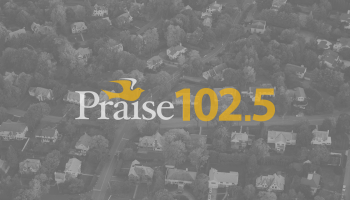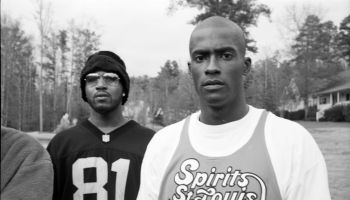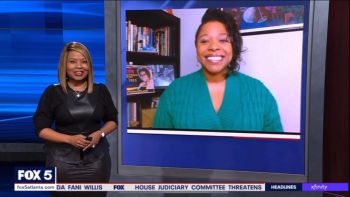Shiho Fukada for The New York Times
From the New York Times:
QOSH, Iraq — A new wave of Iraqi Christians has fled to northern Iraq or abroad amid a campaign of violence against them and growing fear that the country’s security forces are unable or, more ominously, unwilling to protect them.
The flight — involving thousands of residents from Baghdad and Mosul, in particular — followed an Oct. 31 siege at a church in Baghdad that killed 51 worshipers and 2 priests and a subsequent series of bombings and assassinations singling out Christians. This new exodus, which is not the first, highlights the continuing displacement of Iraqis despite improved security over all and the near-resolution of the political impasse that gripped the country after elections in March.
It threatens to reduce further what Archdeacon Emanuel Youkhana of the Assyrian Church of the East called “a community whose roots were in Iraq even before Christ.”
Those who fled the latest violence — many of them in a panicked rush, with only the possessions they could pack in cars — warned that the new violence presages the demise of the faith in Iraq. Several evoked the mass departure of Iraq’s Jews after the founding of the state of Israel in 1948.
“It’s exactly what happened to the Jews,” said Nassir Sharhoom, 47, who fled last month to the Kurdish capital, Erbil, with his family from Dora, a once mixed neighborhood in Baghdad. “They want us all to go.”
Iraq’s leaders, including Prime Minister Nuri Kamal al-Maliki, have pledged to tighten security and appealed for tolerance for minority faiths in what is an overwhelmingly Muslim country.
“The Christian is an Iraqi,” he said after visiting those wounded in the siege of the church, Our Lady of Salvation, the worst single act of violence against Christians since 2003. “He is the son of Iraq and from the depths of a civilization that we are proud of.”
For those who fled, though, such pronouncements have been met with growing skepticism. The daily threats, the uncertainty and palpable terror many face have overwhelmed even the pleas of Christian leaders not to abandon their historic place in a diverse Iraq.
“Their faith in God is strong,” said the Rev. Gabriele Tooma, who heads the Monastery of the Virgin Mary, part of the Chaldean Catholic Church in Qosh, which opened its monastic rooms to 25 families in recent weeks. “It is their faith in the government that has weakened.”
Christians, of course, are not the only victims of the bloodshed that has swept Iraq for more than seven and a half years; Sunni and Shiite Arabs have died on a far greater scale. Only two days after the attack on the church, a dozen bombs tore through Sunni and Shiite neighborhoods in Baghdad, killing at least 68 people and wounding hundreds.
The Christians and other smaller minority groups here, however, have been explicitly made targets and have emigrated in disproportionate numbers. According to the Office of the United Nations High Commissioner for Refugees, these groups account for 20 percent of the Iraqis who have gone abroad, while they were only 3 percent of the country’s prewar population.
More than half of Iraq’s Christian community, estimated to number 800,000 to 1.4 million before the American-led invasion in 2003, have already left the country.
The Islamic State of Iraq, an iteration of the insurgent group Al Qaeda in Mesopotamia, claimed responsibility for the suicidal siege and said its fighters would kill Christians “wherever they can reach them.”
What followed last month were dozens of shootings and bombings in Baghdad and Mosul, the two cities outside of the semi-autonomous Kurdish region in northern Iraq. At least a dozen more Christians died, eight of them in Mosul.
Three generations of the Gorgiz family — 15 in all — fled their homes there on the morning of Nov. 23 as the killings spread. Crowded into a single room at the monastery in Qosh, they described living in a state of virtual siege, afraid to wear crosses on the streets, afraid to work or even leave their houses in the end.
There is no exact accounting of those who have fled internally or abroad. The United Nations has registered more than 1,100 families. A steady flow of Christians to Turkey spiked in November to 243, an official there said.
Christmas was declared a national holiday in 2008, though celebrations are muted, and in Kirkuk, a tensely disputed city north of Baghdad, Christmas Mass was canceled last year.
The United States Commission on International Religious Freedom, appointed by the president and Congress, said that the nominal protections for religious minorities in Iraq — including Christians, Yazidis and Sabean Mandeans, followers of St. John the Baptist — did little to stop violence or official discrimination in employment, housing and other matters. It noted that few of the attacks against minority groups were ever properly investigated or prosecuted, “creating a climate of impunity.”
Archdeacon Emanuel said the government needed to do more to preserve a community that has been under siege in Iraq for decades — from the first massacre of Christians in Sumail in 1933 after the creation of the modern Iraqi nation to the dictatorship of Saddam Hussein to today’s nihilistic extremism that, in his words, has taken Islam hostage.
“What happened has been done repeatedly and systematically,” he said. “We have seen it in Mosul, in Baghdad. The message is very clear: to pluck Iraqi Christians from the roots and force them out of the country.”
RELATED: Christmas Celebrations Threatened In Iraq
RELATED: Faithful Find Spiritual Bond In Ancient Syrian Monastery














